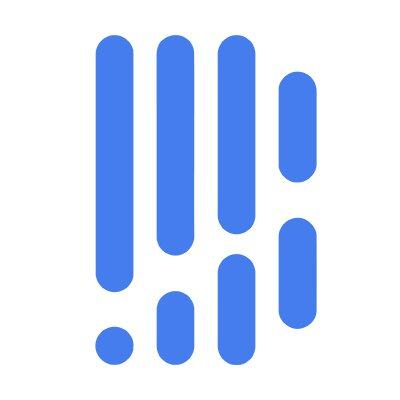Kraken "takes over" FTX's unfinished road: stock tokenization, aiming at the trillion-dollar market
Original title: "Kraken Enters the Stock Tokenization Market, Why Are Trading Platforms Piling Up to Seize the Track?" Original
author: 1912212.eth, Foresight News
On May 22, Kraken, an all-crypto trading platform, announced that it will partner with Backed Finance to launch a tokenised stock and ETF trading service called "xStocks", covering more than 50 U.S.-listed stocks and ETFs such as Apple, Tesla, and Nvidia. In recent years, the integration of blockchain technology and traditional finance has been accelerating, and cryptocurrency trading platforms are becoming the vanguard of this change. The movement of tokenising the dollar and Treasury bonds in the past is now being pushed to US stocks by trading platforms?
Strategic expansion
Founded in 2011, Kraken is one of the oldest cryptocurrency trading platforms in the world, with a reputation for security and compliance. In recent years, Kraken has continued to push the boundaries of its business as the crypto market has become more competitive. In 2024, Kraken acquired NinjaTrader, a futures trading platform, and launched more than 11,000 traditional trading services for U.S. stocks and ETFs in select U.S. states.
Tokenized stocks refer to the conversion of equity in traditional stocks or ETFs into digital tokens through blockchain technology, with each token representing a portion of ownership of the underlying asset. These tokens can be traded 24/7 on the blockchain, breaking through the trading hours and geographical restrictions of traditional stock markets. Kraken's xStocks, based on the Solana chain, are planned to be available to non-US customers across Europe, Latin America, Africa, and Asia. Backed Finance is responsible for acquiring and escrow the underlying shares, ensuring that each token is pegged 1:1 to a real asset, and holders can redeem the cash value of the token at any time.

This initiative is not an isolated incident. In 2025, global crypto trading platforms are accelerating their penetration into traditional finance. For example, Bybit recently announced that it will support USDT trading in 78 high-quality global equity assets, covering tech giants (such as Microsoft, Google), consumer goods companies (such as Coca-Cola), and energy companies (such as ExxonMobil). Users can use the stablecoin USDT to trade and enjoy the advantages of low threshold and high liquidity. Industry trends show that tokenised assets are becoming a bridge between crypto trading platforms and traditional finance.
FTX vs. Binance Tokenized U.S. Stock History
The concept of tokenised stocks is not new, as crypto trading platforms began to test the waters around 2020, with FTX and Binance being the most representative. Founded in 2019, FTX was once the world's third-largest crypto trading platform and was known for its innovative products. In 2020, FTX launched tokenised stock trading, allowing users to trade digital tokens of Tesla, Apple, and other U.S. stocks through its platform. The tokens are provided by FTX's Swiss subsidiary, Canco GmbH, and are pegged to real shares hosted by a third-party broker. FTX's tokenised shares support fractional trading, allowing users to purchase some shares at a cost as low as $1, greatly lowering the investment threshold. In addition, FTX is also experimenting with tokenised ETFs such as the SPDR S&P 500 ETF (SPY).
However, FTX's tokenised stock business has been limited due to compliance issues and market volatility. In November 2022, FTX went bankrupt due to a mismanagement of funds and fraud scandal, and its tokenised stock business was terminated. Still, FTX's attempt is a testament to the market demand for tokenised stocks, especially among emerging markets and young investors.
In 2021, Binance also launched tokenised stock trading, with the first batch including Coinbase, Tesla, and other stocks. These tokens are settled in Binance stablecoin BUSD, which supports fractional trading, and aims to provide users around the world with convenient access to U.S. stocks. However, Binance's tokenised stock business soon ran into regulatory headwinds. Financial regulators in several countries have questioned its compliance, arguing that tokenised stocks may have bypassed the regulatory framework of traditional securities markets. In the same year, Binance announced the termination of the business to focus on core crypto trading.
FTX's experience with Binance shows that tokenised shares are technically feasible but face challenges in terms of compliance, asset custody, and market acceptance. With the launch of xStocks, Kraken clearly learns the lessons of its predecessors, emphasising working with regulators and ensuring transparency and security through Backed Finance.
Why trading platforms are keen to tokenise stocks
Crypto trading platforms are deploying tokenised stocks, which are not only driven by technology, but also by market and strategic considerations. According to April 2025 data, the total market capitalisation of U.S. stocks is about $52 trillion, accounting for more than 45% of the global stock market. The user base of crypto trading platforms is mainly young investors with a high risk appetite, but the scale of the traditional financial market far exceeds that of the crypto market. Tokenized stocks provide an entry point for trading platforms to cut into traditional finance, attracting traditional investors who are interested in stocks and ETFs. For example, Kraken's xStocks, which caters to non-US customers, targets investors in emerging markets who have strong demand for U.S. stocks but are limited by traditional channels.

In addition, the core advantages of blockchain technology are decentralisation, transparency and efficiency. Tokenized stocks use the blockchain to achieve 24/7 trading, instant settlement, and low-cost operations, which solves the problems of limited trading hours and high intermediary fees in the traditional stock market. In addition, blockchain supports fractional transactions, allowing small investors to participate in high-value assets, enhancing financial inclusion.
In the context of fierce competition on crypto trading platforms, tokenised stocks have become a weapon for differentiated competition. Kraken's xStocks not only provide trading capabilities, but also allow users to use tokens as collateral for DeFi protocols, enhancing the liquidity and use cases of assets. This cross-border integration provides users with more diversified investment options and consolidates the ecological stickiness of the trading platform.
What is the impact on traditional stock trading platforms

The tokenised stock business of exchanges such as Kraken poses certain challenges to traditional stock trading platforms such as NASDAQ and NYSE, but also brings opportunities for cooperation and transformation. Trading hours on traditional stock trading platforms are usually limited to specific hours of the business day, and cross-border investments involve high fees and settlement cycles. The 24/7 trading and instant settlement of tokenised stocks directly challenges the operating model of traditional trading platforms. Especially in emerging markets, investors may be more inclined to gain exposure to U.S. stocks through crypto trading platforms rather than traditional brokers.
In the face of the impact of blockchain technology, traditional trading platforms are not without countermeasures. Institutions such as NASDAQ have begun to explore the application of blockchain in the field of securities settlement and clearing. For example, Nasdaq has partnered with R3 to develop an asset management platform based on the Corda blockchain. In the future, traditional trading platforms may cooperate with crypto trading platforms to launch their own tokenised products or provide more efficient trading services through technological upgrades.
The rise of tokenised stocks has prompted regulators to re-examine the compliance framework for blockchain finance. This provides an opportunity for traditional trading platforms to work with regulators to maintain market fairness and stability by setting industry standards. For example, the recent easing of the SEC's enforcement actions against crypto trading platforms shows that regulators are open to blockchain technology innovation.
brief summary
Kraken's xStocks, Bybit's USDT stock trading, and FTX's early attempts at Binance have all outlined the evolution of tokenised stocks. This trend is not only a product of the integration of blockchain technology and traditional finance, but also a microcosm of the diversification and technology-driven global investment demand. For investors, tokenised stocks offer a more flexible and low-cost way to allocate assets; For the trading platform, it is a strategic weapon to seize the market and differentiate the competition; For traditional stock trading platforms, it is not only a challenge, but also an opportunity for technological upgrading and market expansion.
However, the adoption of tokenised stocks still faces multiple challenges of compliance, technology and market education. Trading platforms like Kraken need to find a balance between innovation and regulation to ensure asset security and user trust. In the future, with the maturity of blockchain technology and the clarity of the regulatory environment, tokenised stocks are expected to become an important part of the global financial market.
Link to original article
